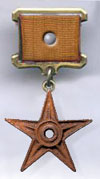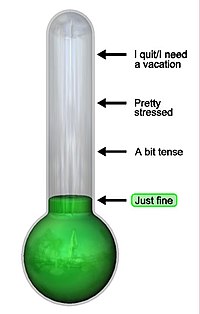I would like to think of myself an inclusionist (more or less) in my feelings on Votes Articles for Deletion, articles that might be considered "fancruft" by some are perfectly valid in my eyes, an article must be pretty clearly unencyclopedic for me to support Deletion, and notable parts of popular culture are encyclopedic, at least encyclopedic enough to be here. Even a fairly minor stub could be expanded into a meaningful, useful article. I have supported deletion in some cases, but only when an article is truly non-notable.
The strength of Wikipedia is certainly not in unquestionable accuracy (although it's about as accurate as watching a typical TV documentary or news broadcast, probably accurate but flaws slip in one way or the other). The strength of Wikipedia is in it's sheer breadth, that you can find an article here on almost anything, and we need to nurture that. People may well originally come to Wikipedia wanting to know some detail about Starfleet ranks and insignia, and stay for other things and become regular wikipedians. The inclusiveness of Wikipedia is what really holds it together.
Lately I've had to nominate several articles for deletion and become active with the AfD system, but only to reply to a large number of hoaxes, unsubstantiated rumors, spam, and utterly non-notable things created as articles, subjects that even my inclusionist tendencies cannot support. Such as Garage Bands, there are way too many small-time, non-notable, go-nowhere bands with stub articles on Wikipedia. Every time a handful of people with marginal musical talent gets together, comes up with a weird name and plays a local club and burns their own self-produced CD doesn't make it encyclopedic, and it seems that many tiny businesses and garage bands think that by having a Wikipedia article about themselves, they gain a measure of legitimacy. I've regretfully had to support deletion of blatant advertisements, patent nonsense, and things that are utterly unredeemable as encyclopedia entries.
It may be controversial, some may call it "Anti Wiki", but I also support the idea that anonymous editors should not be allowed to make edits. The overwhelming majority of vandalism seems to come from anonymous editors, and the impediment to someone wanting to edit on Wikipedia is minimal if they merely have to register for an account and have some token accountability for their edits, it's a matter of practicality (improving the validity of wikipedia as a source of information by reducing vandalism) versus idealism (the concept that anybody can edit anything on wikipedia). I also wonder about the legality of Wikipedia letting anybody edit it, in terms of compliance with the Children's Online Privacy Protection Act, since the Wikimedia Foundation is incorporated in the United States.
I welcome the new change to Wikipedia in the aftermath of the John Seigenthaler Sr. scandal such that anonymous users cannot create pages, it's a first step towards a more responsible Wikipedia. Now if only the "mainstream media" would stop using Mr. Siegenthaler's fury at a rumor on his biography as an excuse to put down Wikipedia as irresponsible and irrelevant, sort of like they are afraid of people getting their information about the world from outside of a conventional source; heavily filtered, screened and slanted.
BBC story about the person who vandalized the John Siegenthaler article. The vandal even later admitted he didn't know that people take Wikipedia seriously, and put that information in as a practical joke to a friend of Mr. Siegenthaler. The webcomic User Friendly has a very amusing and accurate take on the situation in this comic [1], the most notable quote being "The problem lies in the fact that people approach Wikipedia the wrong way. It is not an authoritative primary source, and should not be treated as one" Exactly, it's a secondary source, and not an authoritative one. You shouldn't cite it in any academic context or rely solely upon it, but it's a great place to start looking for information on a subject.
Ideally, I'd like to see Wikipedia at least have the same degree of verification of it's editors you would find on a typical internet message board: requiring a valid e-mail address and confirmation to create an account, and restricting edits to those who are logged in only. Why is it easier to contribute to an encyclopedia that people may count on for reference than it is to post on a message board about how cool your favorite TV show is or what you had for breakfast that day.
Decentralized and Universal
edit
Another real strength of Wikipedia is just how many people contribute to it, the 1000+ regular, active wikipedians, plus thousands more occasional contributors. While NPOV is an avowed principle of Wikipedia, it really is achieved by having as many different contributors as possible, to watch each other's shoulders, gently correct accidental biases that slip in, and make something greater than the sum of the contributors.
I also see Wikipedia as the creation of something that could expand to be a truly great reference work in time. While not absolutely reliable, it is, by far, the biggest single research & information site on the web, a universal reference that people around the world can go to for free to find things out, that's edited and written by people from all over. In the age of vastly improving PDA's with wireless internet, you could access wikipedia almost anywhere. Amusingly, I don't think anybody quite expected The Hitchhiker's Guide to the Galaxy to be one of those science fiction works that comes true, but I could imagine a stub that would list an entire planet as "Mostly Harmless".
Anti-Mergist/Redirectionist
edit
One thing that has annoyed me lately is seeing articles I've worked long and hard on, searched out sources, cited references, added categories, rephrased the text to flow better, tried to make the article have a good structure and style, be hacked apart and redirected and merged without so much as a discussion on a talk page. If it's clear somebody has put a lot of effort into a page, I find it inappropriate to redirect & merge the page without some discussion.
Also, Wikipedia guidelines do state that an article should stay below 50 kb in size. Huge merged lists of multiple articles can run over that limit easily. Guidelines say that an article should be broken down in such cases, where you end up with the articles the lists were compiled from.
Wikipedia and Martial Arts
edit
I am interested in editing articles on Martial Arts on wikipedia. I've studied Shaolin-Do, Kiyojute Ryu Kempo, and Kendo at various times. The focus of my Bachelor's Degree in History was East Asian History and I took pretty much every class in East Asian and Japanese History and Culture taught at the undergraduate level at UK, and I've been studying various martial arts since I was about 8 years old so this is a major longtime interest of mine.
Kentucky History and Politics
edit
As a student of History and Political Science from Kentucky, I've made much work of contributing to pages on famous historic Kentuckians and locations in Kentucky, often Kentucky politicians.
I sometimes spend time at Category:Category needed adding categories to articles, typically stubs, that need it.
New Pages & Recent Changes
edit
I spend much of my time on Wikipedia checking on newly created pages (and redirecting them, tagging them for Speedy Deletion, or other urgent cleanup tasks) and patrolling recent changes to keep an eye out for vandalism.

